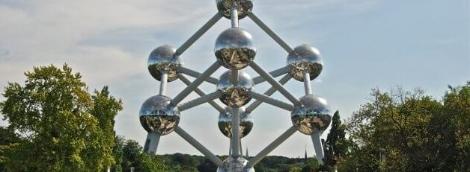Zemu in Brussels: mixed zoning to ensure that productive activities are maintained
Practical notebook no. 16: (Re)developing productive activities in metropolitan regions
Thierry Petit, November 2024
In Brussels, the creation of the ZEMU (zones d’entreprises en milieu urbain - urban enterprise zones) is an opportunity to integrate productive activities into the urban environment. This has made it possible to redefine mixed-use zones where productive activities can, and in some cases must, coexist with housing.
To download : cp16_ok_bat_web.pdf (7.3 MiB)

The Brussels-Capital Region’s 2001 Regional Demographic Land Use Plan (Pras) was revised in 2012, with the main aim of responding to the demographic challenge, with a pressing need for housing and school infrastructure. The revision of this plan focuses primarily on the possibility of increasing housing production in an area that is already highly constrained, with insufficient undeveloped or fallow land to meet identified needs. The revised Pras therefore proposes to mobilise spaces in economic or mixed-use zones, while preserving the dominant use. One of the three avenues being explored to achieve this objective is the urban enterprise zone (Zemu). This involves envisaging a functional mix within urban industrial zones (ZIU) that are currently mono-functional and intended for production and logistics activities. The Pras specifies, however, that these Zemu should concern sites that are accessible by public transport, in or in the immediate vicinity of existing housing, and that cohabitation between residential functions and existing economic functions should not jeopardise the main economic function of the site or be incompatible with the residential function. For these Zemu, any new housing development of more than 10,000 square metres will be required to create 2,000 square metres of business premises per building on the ground floor or adjacent to it, in response to unsatisfied demand of between 250 square metres and 1,000 square metres.
The example of the NorthCity park in Haren
A 2.5-hectare former Prémaman warehouse, located on the edge of a residential area along Middelweg in Haren to the north of Brussels, was zoned Zemu. The land was acquired in 2017 by a private company, Futurn, specialising in the redevelopment of commercial property. Following partial demolition, renovation and reconstruction, it will be used to build a 123-unit, 9,800 square metre mixed-use residential development, which will be resold to a specialist player, and a 15,000 square metre business development for SMEs in two lots. The first 7,575 square metre plot has been marketed for sale to SMEs, while the second, of the same size, is leased to SMEs under the management of Citydev.brussels. The park managed by Citydev.brussels was inaugurated in March 2022; it comprises 17 modules averaging 266 square metres, with a total of 4,531 square metres of workshops, 447 square metres of showroom space, 1,033 square metres of offices and 1,551 square metres of covered parking (55 spaces), plus 23 outdoor spaces.
Activities include a central kitchen for a chain of Italian restaurants, a caterer, a company that reconditions electronic components, a B2B distributor of food products (popcorn, confectionery, etc.), video post-production and management of audiovisual equipment, a workshop producing exotic fruit juices, a distributor of intelligent fridges, etc.
Success factors/issues to watch out for
The Zemu scheme helps to slow down a powerful process of eviction from productive activities. To identify candidate sites, the Brussels regional development agency Citydev.brussels (see fact sheet no. 24, p. 116-117) uses its Inventimmo database to exercise its right of pre-emption over vacant spaces and premises, and then to issue invitations to tender for mixed-use property developments. The points of vigilance concern the definition of ‘economic activities’ in the Zemu, which leaves a great deal of freedom as to the activities hosted. The choice of operators for the development of mixed-use schemes is crucial, as this type of mixed product is complex and often carried out by housing specialists, resulting in premises that are ill-suited to productive activities. Other criticisms of mixed-use areas include the contradiction between maintaining productive activities and the influx of new residents, which leads to more frequentation, more demand for services and therefore a higher level of potential conflict of use. These productive activities are in no way similar to industry…
Sources
To go further
-
perspective.brussels/fr/plans-reglements/plans-reglementaires/plan-regional-daffectation-du-sol-pras
-
Adrian Vickery Hill & Josie Warden, Cities of Making City Report, Cities of Making Brussels, May 2018.
-
Hugo d’Assenza-David, Bruxelles : une ville productive et résidentielle, Puca, septembre 2021.